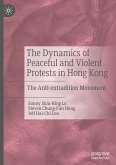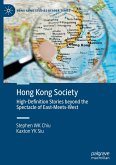Hong Kong Politics: A Comparative Introduction is a comprehensive and pioneering guide of this emerging field. It aims to advance scholarly understanding of Hong Kong's political developments since the handover of sovereignty in 1997, using a comparative politics approach.
The book advances a unique integrated comparative framework for studying Hong Kong through geopolitical, autonomy, centre-periphery, democratisation, political-economic, and governance perspectives. It guides readers to understand and interpret the various political dimensions of Hong Kong in a comprehensive and holistic way.
This book will be of key interest to scholars and students of comparative politics. Experienced political researchers in Hong Kong will find this book illuminating; while comparative political scholars worldwide would also find it a handy introductory text to the important case of Hong Kong. This book is also an excellent resource for instructors and students of Asian Studies, China Studies, and Hong Kong Studies.
The book advances a unique integrated comparative framework for studying Hong Kong through geopolitical, autonomy, centre-periphery, democratisation, political-economic, and governance perspectives. It guides readers to understand and interpret the various political dimensions of Hong Kong in a comprehensive and holistic way.
This book will be of key interest to scholars and students of comparative politics. Experienced political researchers in Hong Kong will find this book illuminating; while comparative political scholars worldwide would also find it a handy introductory text to the important case of Hong Kong. This book is also an excellent resource for instructors and students of Asian Studies, China Studies, and Hong Kong Studies.








